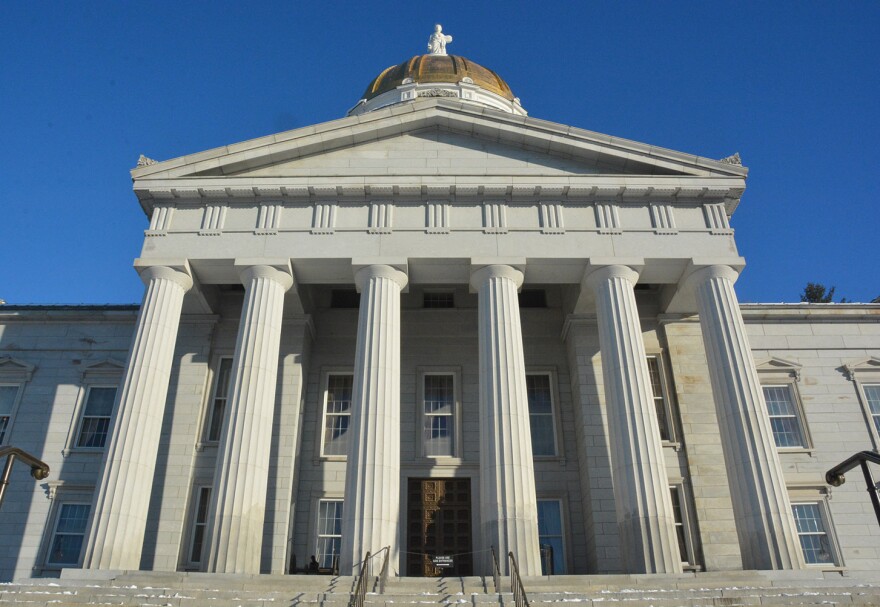Lawmakers burned the midnight oil early Saturday morning to approve a bill that softens the impact of school district spending thresholds.
In the sort of move normally reserved for the final days of the legislative session in May, House members convened a special session shortly after midnight Saturday morning, after reaching a deadlock the day before on a bill that would raise school district spending thresholds and lower the tax penalties for exceeding them.
More than one week ago, House lawmakers passed a bill that would raise every spending threshold — which vary from district to district — by 0.9 percent, and lower the tax penalty for exceeding them from 1 dollar for every dollar over the threshold to 25 cents for every dollar over.
The thresholds themselves are a provision of Act 46, the school district merger bill passed by lawmakers in 2015, which seeks to create larger districts to both promote equity for students and contain costs.
The thresholds were intended as a two-year stop-gap measure to give relief to property tax owners while the mergers take place. However, many districts found themselves over their thresholds due to a projected 7.9 percent increase in health insurance costs.
On Thursday, Senate lawmakers amended the bill by raising the tax penalty to 40 cents for every dollar over the threshold. At the same time, they voted to exempt from the thresholds any school district that is spending less the statewide per-pupil average of $14,095.
Lastly, while House members voted to keep the thresholds for fiscal year 2018, Senate lawmakers voted to repeal the thresholds for 2018.
Because the Senate passed the bill Thursday, it was necessary for House members to vote to suspend the rules to take up the bill on Friday, a vote that required a super-majority, or 75 percent, or lawmakers voting in the affirmative.
However, voting as a block, House Republicans defeated two attempts to suspend the rules to take up the bill. During their caucus, House Republicans argued they had just received the bill from the Senate and needed time to study it.
“It’s more important to get this right than to get this right away,” said House Minority Leader Don Turner, R-Milton. “This is not procedural nonsense, as some have said. It’s the right thing to do.”
Lawmakers in both the House and the Senate were under pressure from the Shumlin Administration to resolve the threshold question prior to Sunday, which is the last day a school district can warn a budget that will be voted on by ballot at town meeting in March.
“We know there are at least some boards that are waiting to finalize their budgets, and most are in the position of having to communicate with their communities about the budgets they will be voting on in just a month,” said Nicole Mace, executive director of the Vermont School Boards Association. “Dragging this out another week is not in anyone’s best interest.”
Procedurally speaking, while lawmakers needed to vote to suspend the rules to vote on Friday, that was not the case for Saturday. Shortly after 3 p.m. Friday, House Speaker Shap Smith announced a special session that would start at 12:01 am Saturday morning.
Rep. Patricia McCoy, R-Poultney, argued the special session was unnecessary because most school districts had already approved the budgets they will present to voters in March.
“In this particular instance, there is no emergency. School boards have been working on budgets since October,” McCoy said. “We cannot continue to change horses in the middle of the stream. This body passed Act 46 a scant seven months ago.”
The special session opened with an amendment proposed by Rep. Carolyn Branagan, R-Georgia, that would have kept the thresholds in place for 2018.
“My provision makes it so school boards will have some parameters for building their budgets for 2018,” Branagan said.
Branagan’s amendment was defeated by a vote of 87 to 37.
Rep. Kurt Wright, R-Burlington, who serves on the House Education Committee — which both crafted Act 46 and the House version of the threshold bill — expressed disappointment the thresholds were being repealed for 2018.
“After all the hard work in my committee, I will be unable to support this bill,” Wright said.
In the end, House lawmakers approved the Senate version of the bill by a vote of 92 to 32.
Following the vote, Gov. Peter Shumlin issued a statement praising House action.
“I appreciate the Legislature’s hard work to make this important change quickly,” Shumlin said. “Today’s vote gives school boards around the state the clarity they need to move forward with budgeting decisions before Town Meeting Day and makes a good bill stronger.”
This story was originally published by the Vermont Press Bureau and is republished here under a partnership with the bureau.




